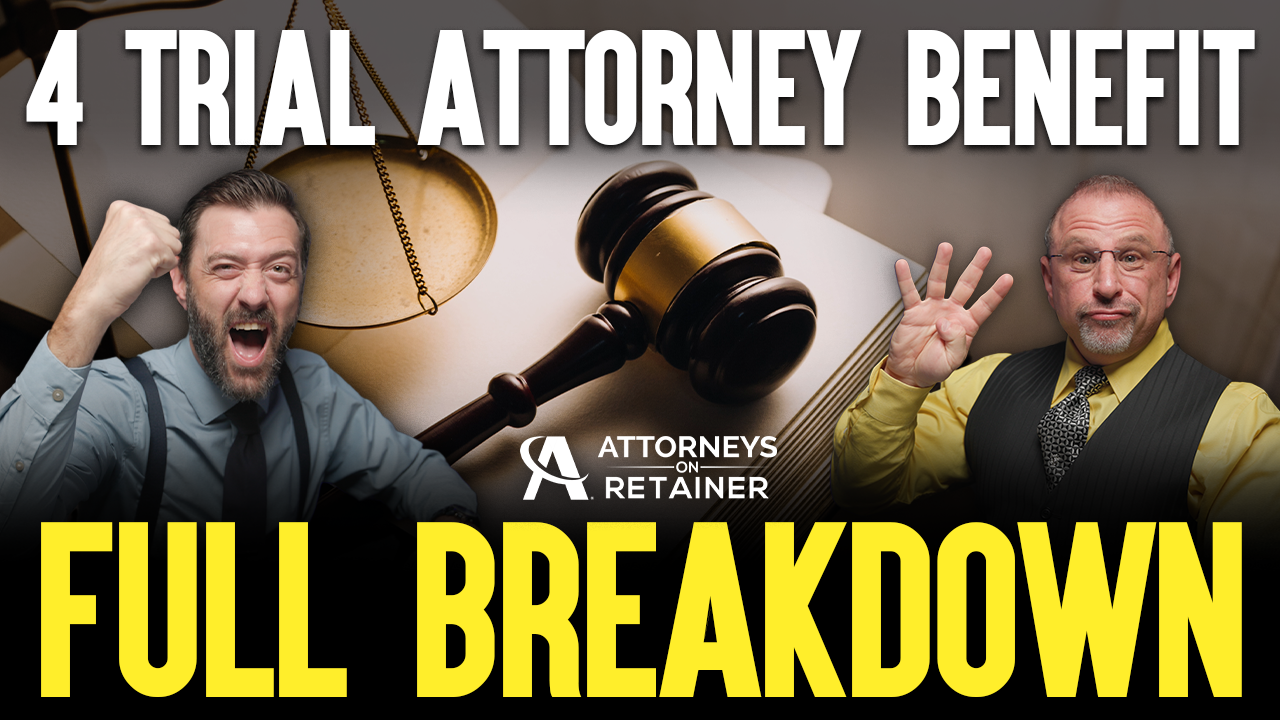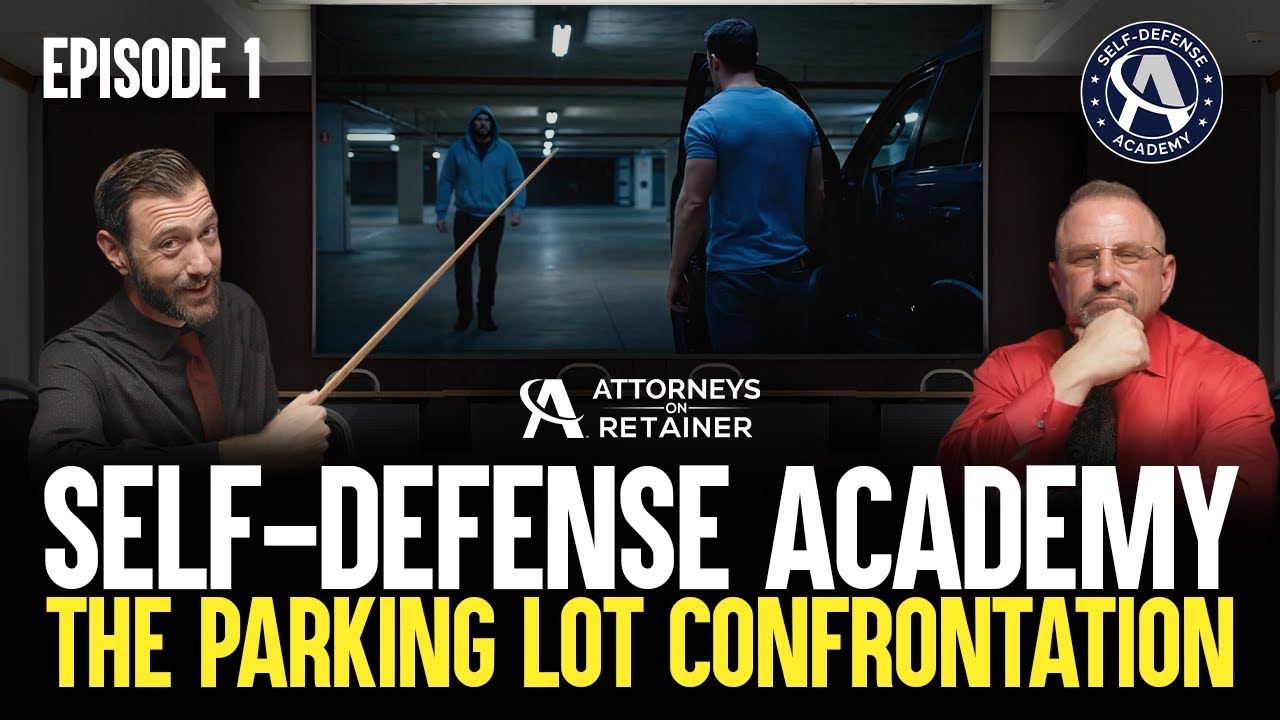Fighting The State Ep. 4: The Flow of a Case
Featuring Attorneys Marc J. Victor and Andrew Marcantel
May 20, 2024
As criminal defense attorneys, we have a lot of experience defending our clients through the criminal justice system. How a case flows, the types of courts, and what happens after sentencing is quite a lot to understand, so our goal is to simply give you the 30,000-foot perspective on this topic. It is essential for anyone involved in or studying the legal system to understand how the criminal justice process works.
Key Points:
- Different Types of Courts
- How Cases Begin
- The Pre-Charge Stage
- Types of Hearings
- Difference Between Felony and Misdemeanor Cases
- Pre-Trial Procedures
- Judges Can Dismiss Cases
- Role of Prosecutors
- Competency Assessments
- Plea Agreements
- Sentencing and Post-Conviction
- Handling Multiple Cases
- Probation Violations
Different Types of Courts
The criminal justice system has two types of courts, Federal and State Courts. The cases that fall into these are determined by how serious the crime was. Below is a breakdown of what types of cases each court sees:
Federal Courts: Federal courts handle cases involving federal laws or interstate commerce matters. The federal criminal justice system has expanded significantly, covering a wide range of crimes. Interstate commerce is the buying, selling, or moving of goods, services, and money across state lines in the United States. The federal government controls this type of trade to make sure it is fair and consistent across all states.
The federal government has the power to get involved in any issue because it can regulate trade and business between states, thanks to the Commerce Clause in the U.S. Constitution. When the federal government gets involved in state legal matters, it can cause problems. States may lose their independence and end up with less effective solutions because the federal government might not understand local issues. This can lead to a one-size-fits-all approach that doesn’t work for every state, creating legal conflicts and taking resources away from state priorities.
“States use different terminology, and even within the same state, even within the same courthouse, sometimes different judges will refer to the same hearing with a different language.”
State Courts: Each state has its criminal justice system, for various types of crimes and procedural rules. There are two types of courts in each state, General Jurisdiction Courts and Limited Jurisdiction Courts. Each court is designated to handle different types of crimes.
- General Jurisdiction Courts: Handle serious crimes, including felonies, major misdemeanors, and civil lawsuits.
- Limited Jurisdiction Courts: Deal with less serious misdemeanors, traffic violations, and minor offenses.
How Cases Begin
A criminal case typically starts with a complaint or a grand jury indictment. We made a video about what happens when you get charged, click here to watch it. When a prosecutor files a complaint, it can lead to an initial appearance in court. For more serious felonies, a grand jury can review evidence presented by the prosecutor and issue an indictment if probable cause is found. This will lead to an arraignment. Lastly, A true bill in the context of a grand jury proceeding, signifies that the grand jury has found sufficient evidence to indict an accused individual and formally charge them with a crime.
The Pre-Charge Stage
The pre-charge stage is the first part of a criminal investigation, happening before any formal charges are made against someone. Click here to watch our video on Pre-Charge and Release Conditions. After this stage, there can be a grand jury or a preliminary hearing.
Types of Hearings
There are two types of hearings, a grand jury and a preliminary hearing. A grand jury hearing is when a prosecutor shows evidence to a group of citizens, without the presence of the defendant and their lawyer. If the grand jury thinks there is enough reason to charge the person, they issue an indictment. On the other hand, a preliminary hearing is held in open court, where a judge decides if there is enough evidence to continue. During this hearing, the defendant and their lawyer can question witnesses and present their evidence. Both the grand jury and preliminary hearing are important steps after the pre-charge stage to determine if the case should go to trial.
Difference Between Felony and Misdemeanor Cases
Felonies are serious crimes that need a judge to confirm there’s enough evidence before going to trial and often involve a preliminary hearing or a grand jury. Misdemeanors are less serious crimes usually charged by police right away, have fewer legal protections, and don’t usually involve a grand jury or preliminary hearing, with jail time differing by state.
Pre-Trial Procedures
Once charges are filed, several pre-trial hearings manage the case. These include pre-trial conferences, where both sides check-in to ensure they are getting ready for trial, and the discovery process, where they exchange evidence. Motions are requests made to resolve specific issues, like suppressing evidence obtained illegally. There are also oral arguments and evidentiary hearings, especially in complex cases that need careful management.
Judges Can Dismiss Cases
Judges can dismiss cases with prejudice, meaning the case cannot be tried again. If a case is dismissed without prejudice, it can be retried as long as it is within the time limit allowed by law. This difference is important because it decides if the prosecution gets another chance to try the case in court.
Role of Prosecutors
Prosecutors have an important job in a case, as they decide whether to charge someone with a crime or offer a plea deal. They must be fair and focus on justice, and not simply win the case. This means they need to make sure all the evidence is legal, and the charges are fair.
Competency Assessments
Prior to the trial starting, if the defendant exhibits signs of incompetence, we must assess their ability to stand trial. If we have doubts about the defendant’s capacity to understand and engage in the trial, we can request a competency evaluation.
Plea Agreements
“Most cases, about 95%, end with a plea agreement rather than going to trial.”
About 95% of cases are settled through plea agreements instead of going to trial. In these deals, defendants might get lighter charges or sentences in exchange for pleading guilty. Defendants do not have a right to plea offers, but they are often used when courts have a high number of cases.
If a plea agreement is not made, the case goes to trial. This involves choosing a jury, presenting evidence, and arguing the case before a judge and jury. Trials are rare but necessary when plea deals are not reached.
Sentencing and Post-Conviction
After someone is found guilty (either through a plea deal or a trial), the case moves to sentencing. The judge then decides the punishment, considering the crime, the defendant’s history, and the details of what happened. After a conviction, you have a few options. You can file an appeal to challenge the conviction if there were legal mistakes during the trial. If new evidence comes up or your lawyer didn’t do a good job, you can seek post-conviction relief, even if you gave up your right to appeal. So, even if you waived your right to an appeal, you could still challenge your conviction through post-conviction relief.
Handling Multiple Cases
Sometimes we have to defend our clients in more than one case at the same time. We aim to handle these cases together so our firm can stay organized and prepare better. This way, we use our resources wisely and give our clients the best defense possible.
Probation Violations
Violating probation conditions can lead to more legal action. We handle each violation as a separate case, which we carefully manage along with any new charges to ensure fair outcomes. By treating each violation on its own, we ensure that the legal process is clear and that everyone’s rights are respected.
“An allegation of a probation violation is just that – an allegation. You have your right to due process.”
Understanding how a criminal case moves through the justice system is important for anyone involved. Knowing what to expect can make a big difference in the outcome. For the best defense, consider joining our Attorneys On Retainer Program.
Our AOR Program focuses on helping clients involved in self-defense cases, providing experienced lawyers who will fight for their rights. Join our program today to get the support you need. To learn more about our Attorneys On Retainer Program, please call 866-404-5112 to contact us today.



